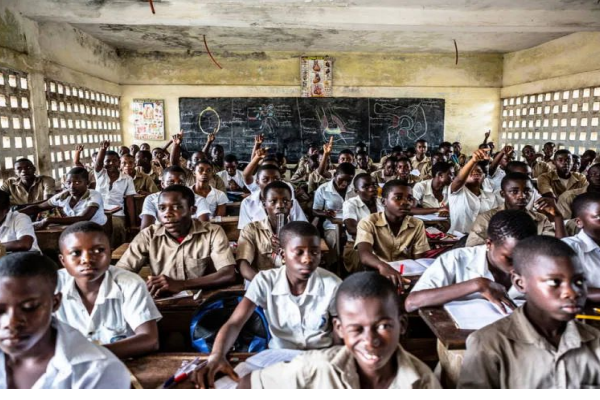The curriculum refers to the collection of courses, coursework, and topics that schools teach. In Nigeria, the issue of school curriculum has been a topic of debate for years. There is a lot of discussion about what should be taught and what should not. A well-designed curriculum should address problems and improve programs to ensure successful implementation.
However, the poor implementation of the curriculum is a major problem in Nigeria. There is a significant gap between government policies and their actual implementation. This disparity between policymakers and implementers causes problems during implementation.
It is important to have a well-designed curriculum to ensure a strong educational and academic system. This is because students can learn about current events and developments.
The 6-3-3-4 model was designed in the Nigerian education system to allow students who couldn’t complete secondary school to pursue vocational or technical education instead. However, it’s unclear whether this goal was achieved.
The Nigerian government tends to rely on changing policies rather than examining and analyzing problems to identify their root causes and develop effective solutions. Over time, the Nigerian government has implemented different education policies, including the 6-5-6 system, the 6-3-3-4 system, and the current 9-3-4 system. However, the challenges with development, planning, and implementation persist.
The basic education curriculum in Nigeria is currently facing significant challenges. Here are a few challenges:
1. Inadequate Professional Teachers: Teachers are essential for curriculum implementation. Teachers undergo training to effectively implement the curriculum with the aid of instructional materials. Unfortunately, despite their significance, there is an inadequate number of professional teachers in basic schools across Nigeria.
2. Corruption: Funds allocated for programs that aim to support the effective delivery of curriculum implementation in Nigerian basic schools are often mismanaged and looted by some officials within the ministries and agencies of education.
3. Inadequate Infrastructural Facilities: Many basic education schools in Nigeria lack adequate infrastructural facilities for teaching and learning purposes. These facilities include administrative blocks, classrooms, libraries, laboratories, ICT centres, tables, desks, blackboards, whiteboards, access to water and electricity, internet services, and road networks.
4. Poor Learning Outcomes: The quality of education in Nigeria’s primary schools is a cause for concern among school administrators. Student learning outcomes in terms of the quality of basic education are poor in Nigeria. Despite international standards, only 66% of public-school students in Nigeria can read at least one of three words and 78% can add single digits after completing grade 4.
5. Policy Changes: One of the factors that have a significant impact on the development of a curriculum is the frequent changes in educational policies. For instance, there was the launch of Universal Primary Education (UPE) in 1976, which aimed to ensure that every child who had attained the age for school enrolment should be admitted to school. Subsequently, various other systems such as the 6-3-3-4 system, the 6-5-4 system, and many others were introduced, leading to changes in the curriculum.
6. Outdated curriculum and examination system: The Nigerian educational curriculum requires a complete overhaul as it has been criticized for failing to adequately prepare students for the demands of the 21st century.










